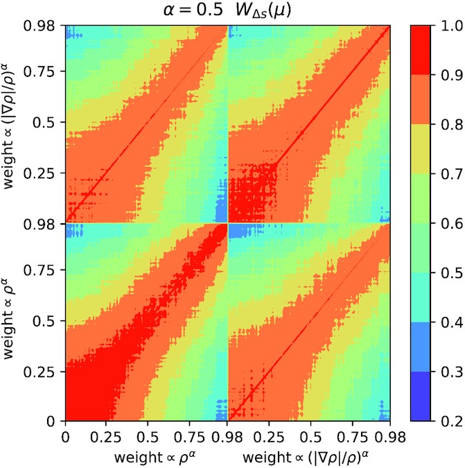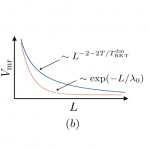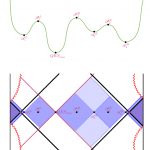Xiaoyuan Xiao, Yizhao Yang, Xiaolin Luo, Jiacheng Ding, Zhiqi Huang, Xin Wang, Yi Zheng, Cristiano G. Sabiu, Jaime Forero-Romero, Haitao Miao and Xiao-Dong Li
Advance Access publication 2022 April 1
Abstract
The mark weighted correlation function (MCF) W(s, μ) is a computationally efficient statistical measure which can probe clustering information beyond that of the conventional two-point statistics. In this work, we extend the traditional mark weighted statistics using powers of the density field gradient |∇ρ/ρ|α as the weight, and use the angular dependence of the scale-averaged MCFs to constrain cosmological parameters. The analysis shows that the gradient-based weighting scheme is statistically more powerful than the density-based weighting scheme, while combining the two schemes together is more powerful than separately using either of them. Utilizing the density-weighted or the gradient-weighted MCFs with α = 0.5, 1, we can strengthen the constraint on Ωm by factors of 2 or 4, respectively, compared with the standard two-point correlation function, while simultaneously using the MCFs of the two weighting schemes together can be 1.25 times more statistically powerful than using the gradient weighting scheme alone. The mark weighted statistics may play an important role in cosmological analysis of future large-scale surveys. Many issues, including the possibility of using other types of weights, the influence of the bias on this statistics, and the usage of MCFs in the tomographic Alcock–Paczynski method, are worth further investigations.


